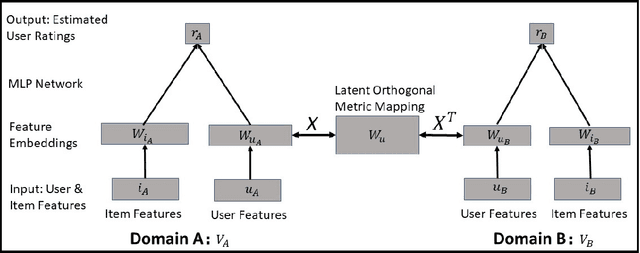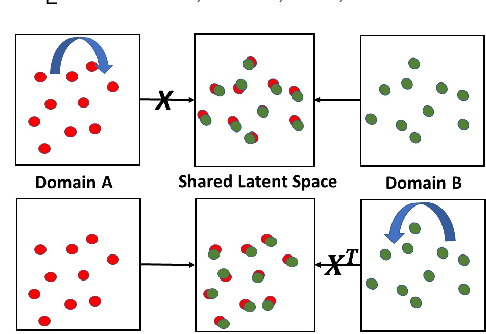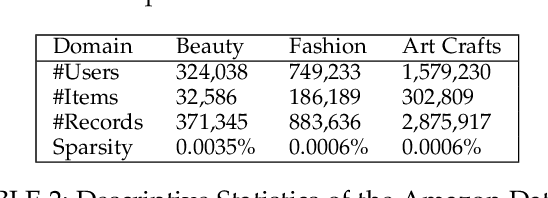Dual Metric Learning for Effective and Efficient Cross-Domain Recommendations
Paper and Code
Apr 20, 2021



Cross domain recommender systems have been increasingly valuable for helping consumers identify useful items in different applications. However, existing cross-domain models typically require large number of overlap users, which can be difficult to obtain in some applications. In addition, they did not consider the duality structure of cross-domain recommendation tasks, thus failing to take into account bidirectional latent relations between users and items and achieve optimal recommendation performance. To address these issues, in this paper we propose a novel cross-domain recommendation model based on dual learning that transfers information between two related domains in an iterative manner until the learning process stabilizes. We develop a novel latent orthogonal mapping to extract user preferences over multiple domains while preserving relations between users across different latent spaces. Furthermore, we combine the dual learning method with the metric learning approach, which allows us to significantly reduce the required common user overlap across the two domains and leads to even better cross-domain recommendation performance. We test the proposed model on two large-scale industrial datasets and six domain pairs, demonstrating that it consistently and significantly outperforms all the state-of-the-art baselines. We also show that the proposed model works well with very few overlap users to obtain satisfying recommendation performance comparable to the state-of-the-art baselines that use many overlap users.
 Add to Chrome
Add to Chrome Add to Firefox
Add to Firefox Add to Edge
Add to Edge